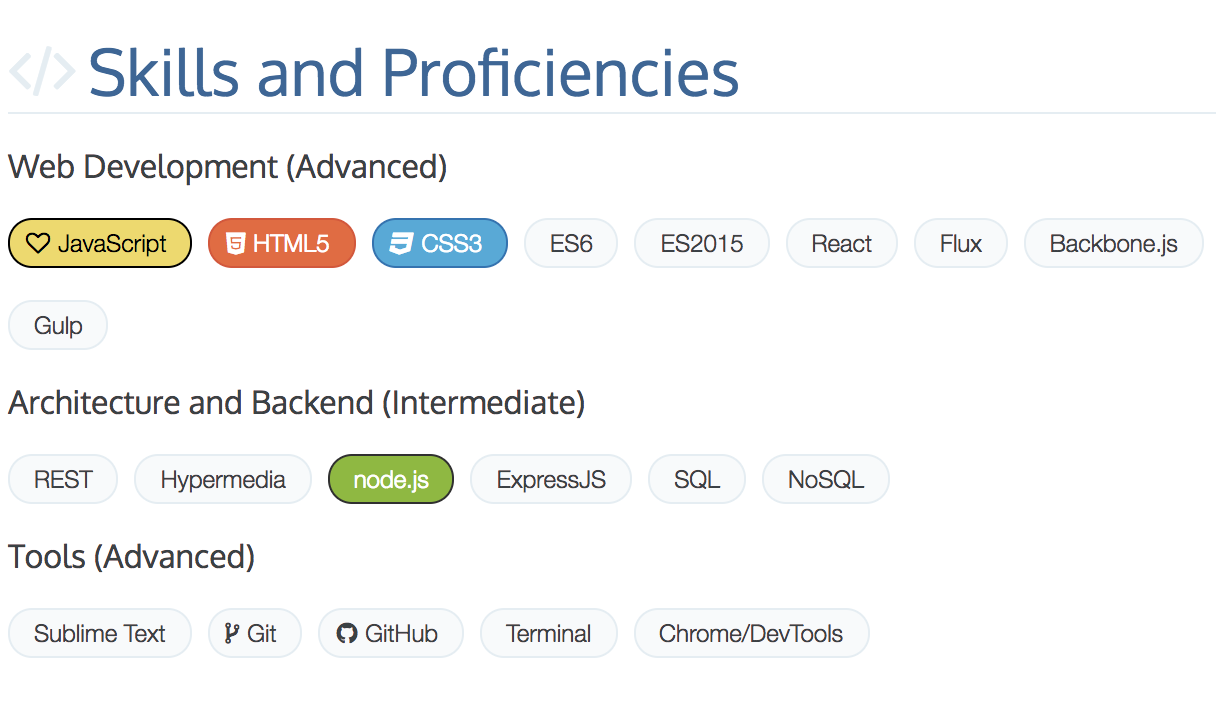Since 2012, Sparkbox has run an apprenticeship program which allows passionate and eager people from all backgrounds and experience levels to learn about web development in a collaborative way. The hope is that after the six month apprenticeship is over, the apprentices will be able to hit the ground running at a web development company with their newly honed skills. Sparkbox has a culture of learning, and we reinforce this culture by teaching and learning from our own apprentices.
Yet, teaching development skills alone isn’t quite enough for an effective apprenticeship. To truly help our apprentices become web developers who can be confident applying for jobs in the web industry, we needed to add a job preparedness section to our curriculum.
Over four sessions, I organized and taught the following topics in our Job Preparedness Workshop: resumes, reading developer job postings, cover letters, interview and whiteboard preparation, and salary negotiation. To create the content for the course, I pulled from my own experiences searching for a job, and also made sure to gather the expertise and advice of Sparkbox’s HR person, Jody, and our technical director, Ryan.
In this article, I want to share a distillation of our most useful pieces of advice for applying for jobs in the web industry, with the hope that it can help other aspiring web developers.
Resumes: Highlight Your Relevant Skills and Activities
At their most basic level, almost all resumes have a similar layout with sections for education and experience. This is also true of resumes in web development; however, there are a few other sections you can add to highlight web development skills and aptitude.
Skills
A skills section is one that is especially specific and essential to developer resumes. With the thousands of coding languages and tools out there, it’s important to highlight what technologies you have worked with and with which you are most proficient. This section should also be tailored job-by-job if possible. For example, if you are currently applying for a JavaScript developer job, highlight your JavaScript skills over your HTML or database skills. Additionally, finding clever ways to group your technical skills into different headings or sections can allow for better readability and clearer hierarchies of proficiencies.

Activities, Speaking, or Writing
An activities section will vary by person, but if you attend or are involved with any web development meetups, hackathons, or teaching groups, or if you speak or write about web development, you should find a place to list that on your resume. These types of “extracurricular” involvements can set you apart from other developers and show that you are not only passionate about web development but also that you are striving to be more proficient at it. Also, if you don’t have any experience like this, going out and finding a local development meetup group can help you grow your skill set and also give you the opportunity to do some networking. I suggest searching for local tech or design meetups on meetup.com.
Tailoring and Proofreading
For any resume, it is so important to try to tailor your experience to the specific job you are applying to. Incorporating and highlighting aspects of your experience that are applicable to a certain job will demonstrate that you are a more valuable candidate and will hopefully help get you past HR and into the next step of the job application process.
Additionally, find someone who can help you proofread your resume for typos and clarity (this actually applies to anything you will be submitting to a company). This step of proofreading, while small, is significant. Getting a second set of eyes to look over your work will help you avoid the tiny spelling and grammatical errors that might distract a company from passing you on to the next round.
Cover Letters: What Can You Do for Their Company?
In the same way you can highlight and tailor aspects of your resume to a specific job opportunity, you can draw those same connections even more clearly in a cover letter. Remember to frame your entire cover letter by describing how you can add value to the company: List out any applicable skills that will be assets to the position, and describe any similar job experiences you have.
While a cover letter does give you the opportunity to tell a company more about yourself, it’s most important to give them a better idea of who you will be at the company. Use your cover letter to tell the company what you like about them: their leadership structure, their sense of community, their values, etc. This type of information will be more powerful, as it shows you have done your research, understand what the company stands for, and that you are a good fit for their organization because your values align.
Preparing for Interviews: Research, Research, and Ask Questions!
Do as much research as you can about a company before an interview. You want to already know the answers to questions such as: How many people work at the company? What kind of work do they do? Knowing this information beforehand will set you apart from other candidates who haven’t done as much research and will also allow you to respond with more complex, thoughtful answers throughout the interview. When I have looked for web development jobs in the past, prior to interviewing, I did research by paying attention to a company’s “About Us” page, and then reading three to five blog or news posts on their site, if available. I have also looked up the work histories of a few of their developers on LinkedIn, especially if I had been told they would be interviewing me.
Lastly, spend some time preparing, at the very least, 10 or so questions based on the research you have done for the interview. Well prepared questions can show your initiative and interest in learning about the company and position. Having questions prepared in advance can also save you and the interviewer from awkward silences and allow you to continue the conversation more productively and positively.
Salary Negotiation: What Do You Need and What Are You Worth?
In order to effectively negotiate a salary at a new position, you must know two things: the bare minimum salary you need to live and what you are worth. Only you will know your bare minimum number and the reasons—be it family, financial loans, etc.—behind that number.
Knowing what you are worth means you need to know what skills, experiences, and aspects about yourself make you uniquely valuable to a company. This could include your knowledge of certain technical skills or that you are able to effectively communicate with clients. Additionally, look up the market salary for that position in your area. Don’t forget to use different titles for your search—web developers go by many names, including web engineers, web designers, and even software engineers. Use websites like Glassdoor and Indeed to do research, or see if your city has done a community-driven salary survey for your profession (I found a really helpful survey created by the Pittsburgh-based meetup group, Code & Supply). Use this knowledge and careful research to feel confident in what you are worth, and to inform your salary negotiations when the time comes.
Research and Tailor Your Way to a Job
If I were to sum up this article in two steps that people should follow when applying for web development jobs, or really any job, those steps would be to first research and then tailor.
Research, while time consuming, is going to set you apart from other candidates and show that you have gone above and beyond in preparing your application. Tailoring your resume, cover letter, questions for interviews—anything you are going to send to a company—is also crucial. Spelling out exactly why you are good fit for a company, as well as how you will help them and make their work more fruitful and efficient, will make hiring you that much easier. Now the people in charge of hiring won’t have to do the work, weeding through your portfolio and resume, to see how you will be a great fit since you’ve already drawn those connections for them!
I hope these tips will serve you well on your own web development job search. Don’t forget that applying for a job is just as much about you interviewing a company as it is about them interviewing you. Through research, asking the right questions, and knowing what you are worth, you are the person who ultimately will decide if the position is a good fit, and one you want to pursue.
Learn more about Sparkbox Apprenticeships

